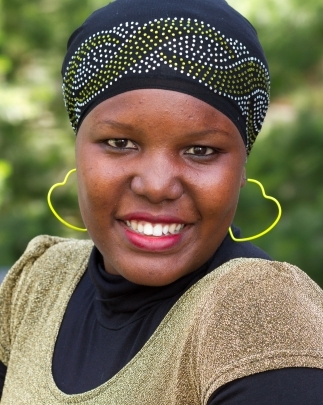Jamila Mayanja receives praise from President Obama at 2014 YALI Summit in Washington D.C.
Next up in my series of women designing the future of Africa is Jamila Mayanja. Jamila was my student at Dartmouth as Mandela Fellow in the YALI program in the summer of 2014. She's an African superstar who was recently highlighted on the BBC.
One of the things I love about Jamila is how she totally embraced the design approach we used in my Design Driven Entrepreneurship class. She's shared stories of how she used in her business, in her trainings and even how she used it to redesign her husband's career.
1. What do you do now?
I am the C.E.O of Smart Girls Uganda and J Mobile Laundry Service.
2. Describe your current businesses.
Both of my current businesses are social enterprises that provide work and train young women The aim is to teach them the skills to start their own small businesses while also providing my clients with a quality, affordable service.
In the future, I'm working on creating affordable local products that encourage Ugandan girls to engage in agribusiness. There is an interesting value-add opportunity here that I don't believe anyone has taken advantage of, yet.
3. What is the main benefit for the customer with your work?
My laundry customers, mostly women, save a lot of time or money that allows them to do other, more important things. They also feel good about themselves because when they engage with us, they feel they are having an impact on our youth by supporting them with a sustainable job that lifts them out of unemployment.
4. Describe how you use or have used design thinking or human centered design in your work.
Well I use it pretty much everything I do. When we expand J Mobile Laundry into new areas, the girls and I use human centered design to engage with future customers to understand their needs and day-to-day challenges. We make sure we are creating and iterating our business services based on our ongoing engagement and understanding with those customers.
With Smart Girls Uganda we train young women to start their own business by using the design thinking process as the foundation and so far it has been a success.
5. How has that impacted your customers?
Our clients feel that we listen to them and hear. They feel that we do a good job of meeting their needs, which makes them feel very connected to our business.
6. How has that approach impacted your business team?
For one, our business team is busier now because of the design approach has helped grow the business pretty rapidly. For another, the staff notice fewer and fewer customer complaints in the areas where we have most heavily implemented our design thinking approach.
 7. What is the biggest challenge you see for African business to become more design oriented and customer obsessed?
7. What is the biggest challenge you see for African business to become more design oriented and customer obsessed?
African businesses have a tendency of rushing to implement a solution without understanding customers and their needs. It means a lot of them are not very good. We also suffer from a cultural influence that makes us afraid to try something new and getting out of our comfort zone. We're going to have to break away from this if we're going to succeed.
8. What design advice would you give to other aspiring African entrepreneurs?
Don't be afraid to get the solution from your customers. Remember too that there are no wrong answers in this process. Let the design process work itself out and be patient with the process, don't rush it.
We all want to be smart and right, but sometimes we can do that even if we don't come up with all of the answers on our own. I think human-centered design gives us a way to do that.

